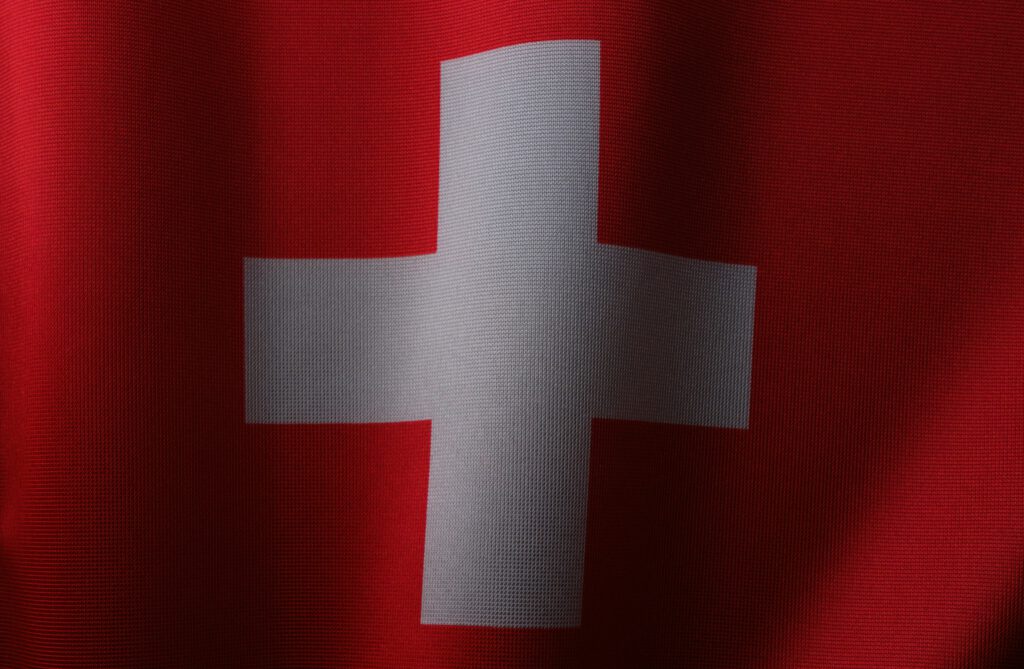
Switzerland wanted to protect the name “Switzerland” and the Swiss cross in a globalized world. But this is now becoming a stumbling block with the US.
Swiss products and services enjoy an excellent reputation both at home and abroad for the values they convey, such as exclusivity, tradition, and quality.
Billions in value
Thanks to this reputation, which is highly valued by consumers, products and services associated with Switzerland could be positioned in a higher price segment, according to the controversial ‘Swissness bill’ when it was launched.
That “Swissness added value” would account for up to 20 percent of the sales price, with watches, jewelry, cheese, and chocolate benefiting substantially.
Together with the machinery industry, Switzerland estimated this added value to be around 5.8 billion Swiss francs.
Obstacle to flexible production
Switzerland therefore wanted to protect the “Made in Switzerland” label and prevent its misuse both at home and abroad.
However, since US President Donald Trump has recently imposed a 39 percent US punitive tariff on Switzerland, the limitations of the so-called Swissness bill for the country’s own economy have become apparent in many areas.
Many companies, such as chocolate and watch manufacturers, are unable to flexibly relocate parts of their production to the US.
According to Swiss law, around 60 percent of the value added and the main manufacturing process must take place within Switzerland, otherwise suppliers are in breach of Swiss law.
From running shoes to coffee
What was already a problem during the consultation process is now becoming even clearer.
Obviously, coffee and cocoa beans do not grow in Switzerland, which is why food giant Nestlé had great difficulty fulfilling the Swissness requirements for its well-known products Nespresso and Nescafé.
The absurdity of all this is also clear in the case of chocolate manufacturers such as Lindt & Sprüngli and Frey. How much actual Swiss value is added when a key ingredient does not even come from Switzerland? Bureaucrats can philosophize about this for years. But none of this is of any use to the companies.
This issue recently came to light with sports shoe manufacturer On, partly owned by tennis star Roger Federer. Some products outside the country bear the Swiss cross, even though the running shoes are manufactured in Asia.
Swiss embassies act as detectives
The country then secured the value of the “Swiss brand” with complicated regulations covering many areas.
In the meantime, this security measure has degenerated into a complex bureaucratic monster, with Swiss diplomats now traveling around the world conducting clandestine investigations and searching for offenders.
Switzerland then takes legal action locally using dubious methods to enforce Swiss law abroad.
Creative calculation methods that exclude raw materials not available in Switzerland now determine what happens.
Swiss cheese made with foreign milk
According to trade associations, food products such as Swiss cheese, chocolate, and cocoa should be exempt from all the nonsense surrounding complicated trademark protection when raw material prices are extremely volatile.
But then “Swiss cheese” could also have been produced using foreign milk, which the Federal Council did not envisage.
Potato chip manufacturer Zweifel even imports potatoes from beyond the country’s borders when Swiss harvests are poor. Foreign sunflower oil has also been used for frying. Here, too, the main added value of “Swiss made” is always affected. By how much? Who knows.
Ultimately, the quality of Swiss goods speaks for itself. Every customer notices when a Swiss luxury watch from Patek Philippe, Rolex & Co. does not meet the country’s high quality standards.
Lost ground
Swiss President Karin Keller-Sutter and Economics Minister Guy Parmelin will attempt today in Washington to persuade US President Trump to reconsider the 39 percent punitive tariffs with an improved offer from Switzerland.
The seriousness of the situation is evident from the fact that Trump is even publicly mocking President Keller-Sutter. In addition, the FDP Federal Councilor will probably only be received by US Secretary of State Marco Rubio today.
Not even the rank and dossier competence are right. Keller-Sutter actually belongs in the White House and on equal footing.
Dependence on Uncle Sam
Ultimately, however, it is clear that the global trend toward producing locally and delivering locally is coming up against the limits of Swiss law.
Keller-Sutter and Parmelin should really clean up restrictive laws at home before touting new offers to the US.
And Switzerland’s dependence on the US for F-35 fighter jets, the pharmaceutical industry of Roche and Novartis, the billion-dollar investments at the Swiss National Bank (SNB), the administration of the AHV social security system by Americans, and so on, is far too great anyway.
Keller-Sutter and Parmelin would be better off flying to Beijing.
06.08.2025/kut./Information on doubts following indications from the company adjusted





